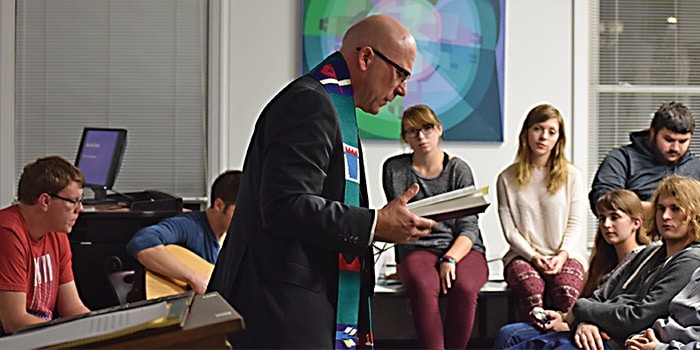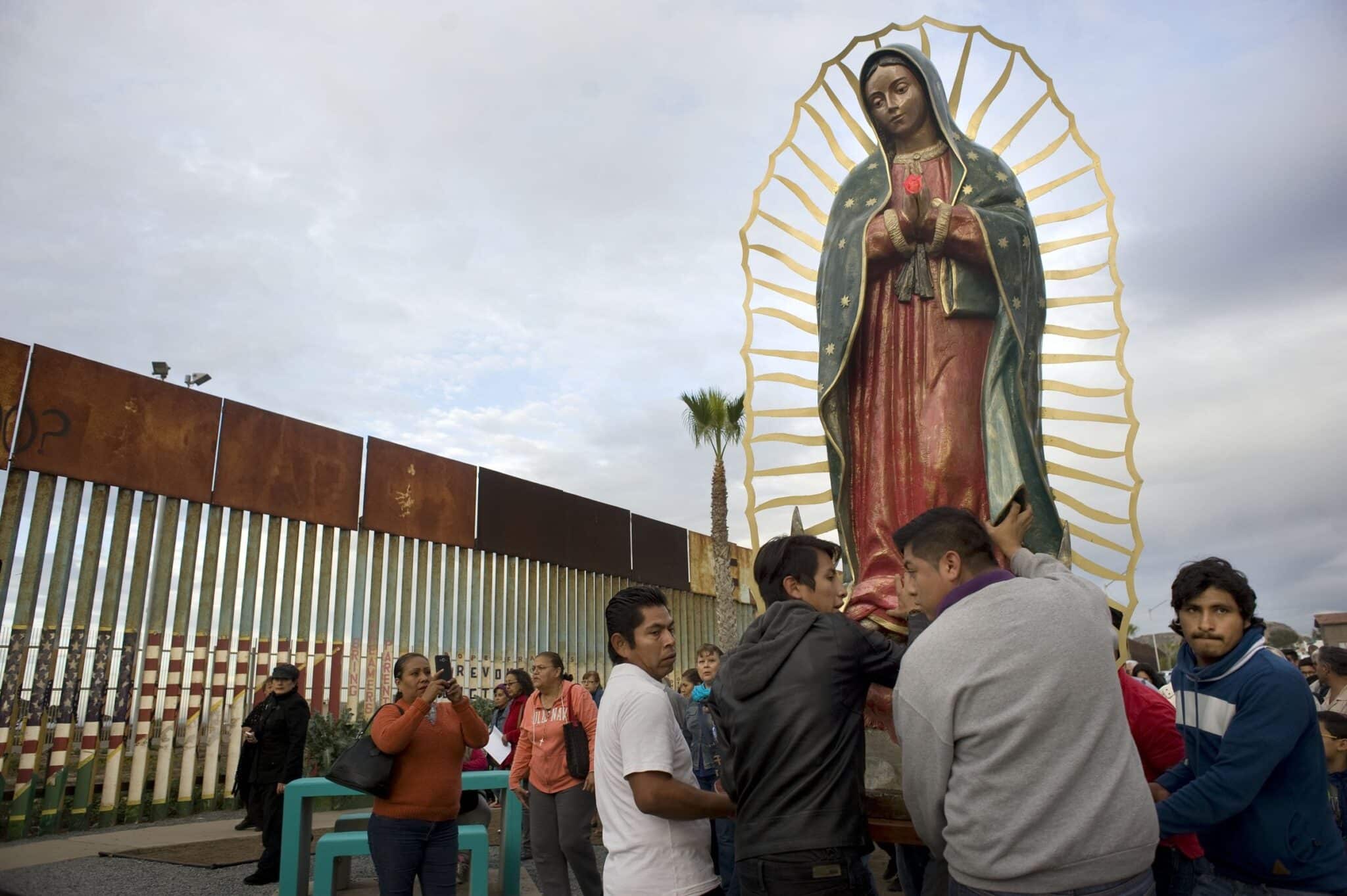This text presents three programs at AFCU schools in Wisconsin, Indiana, and Pennsylvania. These initiatives were described during breakout sessions at the recent Association of Franciscan Colleges and Universities’ June 2018 symposium held at the University of St. Francis in Joliet, Illinois. In even-numbered years, the AFCU holds a symposium at one of the Association’s 27 member schools.
Training Ethical Nurses
“Moral Triage: Admitting Social Ethics into Nursing Practice” is the title of a recent research project sponsored at Viterbo University in La Crosse, Wisconsin. The AFCU workshop was presented by Matthew Bersagel Braley, (associate professor in the school of humanities) and Julie Meyers (assistant professor in the school of nursing).
This project’s primary question was, “How do nurses understand the social justice dimensions of patient care arising in their first years of professional practice?”
A person’s total health is influenced by factors far beyond the care that nurses can give in a clinical setting. The study involved interviews with recent graduates of Viterbo’s nursing program who were employed at Gundersen Health System and Mayo Clinic-Franciscan Health Care in La Crosse, Wisconsin.
The semi-structured interviews ranged from 45 to 60 minutes, collecting qualitative data about their early careers and identifying moral dilemmas and tension within the nurse-patient relationship. The university’s nursing classes emphasize the need to see the whole person in the context or her or his relationships, using real-life examples.
In 2015 and 16, five undergraduate research students conducted 15 interviews. Some of the conclusions have been incorporated into the school’s Ethics and Medicine elective course. The university’s curriculum for all students emphasizes the Franciscan values of hospitality, service, integrity, contemplation, and stewardship.
The interviews suggest that Viterbo nurses care for the whole person, are very capable and concerned about ethical reasoning in their profession, and are interested in improving the broader health care system. Apart from the interviews, employers of Viterbo nursing graduates have typically described them as compassionate, genuine, holistic, nonjudgmental, and ready to advocate for patients.
More information is available at www3.viterbo.edu/school-nursing.
Developing Student Leaders
At the June 2018 AFCU symposium, Beth Groman (associate dean for campus life the University of St. Francis in Ft. Wayne, Indiana) and Katie Dwyer-Zeman, director of student activities and leadership development) explained a student leadership program that began in 2010 and has continued to evolve from one emphasizing individualized, functional training to one that models a collaborative, leadership formation program.
They see the goal of their program as training student leaders who are solidly based in the Franciscan tradition and empowered to use their strengths and gifts to serve one another, society, and the Church in their chosen vocations.
In the 2017-18 school year, this program involved 70 students who participated in retreats, workshops, and functional groups designed to promote growth in such leadership.
No Human Being Is Illegal
Before graduation, all current students at Saint Francis University (Loretto, Pennsylvania) are required to take Core 407, a keystone seminar with a focus on ethical issues. Faculty offer various themed courses to fulfill this requirement. Since the spring of 2016, Doctor Margaret Morales in the literature and languages department has taught a course entitled “No Human Being Is Illegal.” The course title is taken from a longer quote from Eli Weisel, a Nobel laureate in literature and a lifelong human-rights advocate.
Students in this popular seminar analyze, discuss, and debate moral and ethical questions about immigration on a national and global scale, considering the positions taken by political leaders and Pope Francis. Doctor Morales has found that students “do care about human rights and are appalled when they realize how much they never learned about their history.”
In her final reflection paper, Alison Adamovich wrote: “The most important thing I learned in this class is that are many sides and opinions to every story and issue. I also learned that supporting your opinions requires that you have factual knowledge about the topic. Many people tend to simply agree with the majority or believe the information that is given to them.
“In order to truly support a topic, I think it is necessary to gain as much truth about that issue before wholeheartedly supporting it. This class has taught me that society in general needs to be more aware of what is going on in the world. We need to develop opinions on our own by hearing from both sides of a topic or story.
“I think this class has most importantly taught me that making people understand your view on something may not always be easy. It may not always actually get through to that person, but trying is better than not speaking up at all.”
More information is available at www.MMorales@francis.edu.
Acting on Catholic Social Teaching
Corey Harris, chair of the humanities department and associate professor of theology at Alvernia College in Reading, Pennsylvania, explains: “As Catholic Franciscan institutions, we are duty bound to show solidarity with marginalized people and populations in order to find increased opportunities for personal flourishing, improved communities, and a sustained commitment to the common good.
“We have engaged in a sustained effort towards achieving inclusive excellence in which all of our students are fully integrated into the university community, and the university itself is a true part of both our local and regional communities. Programs like our Reading Collegiate Scholars (which offers scholarships to matriculating students from Reading, the only majority Latino city in Pennsylvania) and the South Reading Youth Initiative (which offers free tutoring to young children) help to establish solidarity in our communities be helping marginalized people.
“Again, as Catholic Franciscan institutions, we have a special obligation to discern how much we should be guided by the values of solidarity and the preferential option for the poor in the face of the real market pressures that much of higher education faces. How can we understand our commitments to inclusivity and diversity (and the teachings of the Catholic Social Tradition) as beneficial? Our institutional vocations may render some of our decisions harder to make, but I put forward that they can also make us better, stronger Franciscan colleges and universities.”








